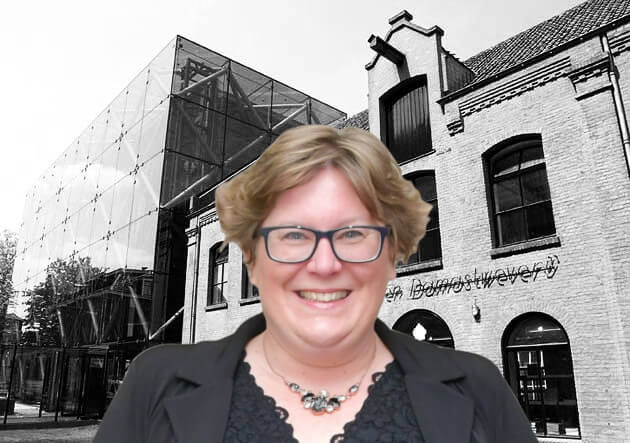
The following phrase is often heard at the management table: the speck on the horizon. If you ask the average MT member to literally visualize that speck on the horizon, they usually describe an image of a horizon with a setting sun and a long straight road towards that sun. As if you were driving in the USA through the Mojave Desert on the freeway towards the sun.
A winding path is more preferable
Two problems accompany that image: the straight road and that final speck on that horizon. To start with the road: not much usually happens on long straight roads. There is no funk, no thrills, no challenge in that, except the challenge of not straying off the road.
Within a business context it is best to go from A to B in a straight line, but that is typical of a boring, predictable context. In organizations where laughter is allowed, where exciting things happen, which have a kick to them, the road never runs linear. Innovative organizations see the road from A to B as a wonderful winding path on which you can eventually reach C.
The second problem is the speck on the horizon itself. For most organizations, that speck translates into more sales, more customers, more branches, more exports, more, more, more… Nine times out of ten, a speck on the horizon is all about a growth scenario. To be honest, that doesn’t quite fit in with the times that we are living in now. As far as I’m concerned, the speck on the horizon is passé.
To the horizon or to the moon?
Personally, I prefer to visualize a challenging vision of the future as a rocket flying to the moon. A great inspiring starting point then is John F. Kennedy’s iconic Moon speech from 1962:
”We choose to go to the moon. We choose to go to the moon in this decade and do the other things, not because they are easy, but because they are hard, because that goal will serve to organize and measure the best of our energies and skills, because that challenge is one that we are willing to accept, one we are unwilling to postpone, and one which we intend to win, and the others, too.”
“We choose to go to the moon in this decade and do the other things, not because they are easy, but because they are hard” as Kennedy said. See, there is a challenge in that.
A journey to a celestial body
By not talking about a speck on the horizon, but a journey to a celestial body, your field of vision immediately changes. You are then no longer moving towards a point up ahead, but to a point in the sky. This causes you to literally start thinking bigger.
As the Dutch singer Ramses Shaffy so beautifully sings in his song Sammy: ‘Hoog Sammy, kijk omhoog Sammy, want daarboven lacht de maan‘ (‘High Sammy, look up Sammy, for the moon is smiling up there‘), always with the accent on high. When you look up, something happens in your body: optimism and energy spring up. When you look up, simply more happens than when you look forward. Up is where impact is.
When you transform that speck on the horizon into a rocket flight to the moon, the rocket itself also forms a very fine metaphor. It shows that you do not get anywhere just like that, but that you need something to get you that far. Something with a spark, something that ignites and has power. So, I ask management around the table not only which moon they want to fly to, but more importantly what is fuelling their rocket.
Planet B
But the main reason why I prefer to talk about a trip to the moon rather than a speck on the horizon is all because of the perspectives on our planet. When you talk about the speck on the horizon, you are sticking to our own earth and you are not aware of the effect on that earth. When you move through our universe thinking imaginatively, you are suddenly presented with a different view of our own earth.
It’s something our top astronaut André Kuipers points out time and time again: “Then you look down from space at that wonderful, colourful Earth and it seems to be shrinking away against the black universe. As if it’s a living cell with just a thin membrane, and then you realise it’s all there is. If we blow it, we have nowhere to go. There is no planet B. We may be able to get a handful of people walking around on Mars, but that’s not the solution for humanity.”

Thinking more inclusively
André Kuipers’ perspective of space compels us to be humble and careful about the world we all live on.
So, not talking about a speck on the horizon but instead about a rocket trip to the moon brings with it a certain responsibility. Impact thinking also entails mapping out the impact of your ideas and future dreams on the planet. Thinking bigger also means thinking more inclusively. Look up, and from that height, look back at the here and now. Then, from your rocket window you will see a blue-green speck on the horizon, a speck that really does matter.
About this column:
In a weekly column, alternately written by Eveline van Zeeland, Derek jan Fikkers, Eugène Franken, Katleen Gabriels, PG Kroeger, Carina Weijma, Bernd Maier-Leppla, Willemijn Brouwer and Colinda de Beer, Innovation Origins tries to figure out what the future will look like. These columnists, sometimes joined by guest bloggers, are all working in their own way to find solutions to the problems of our time. So tomorrow will be good. Here are all the previous article

